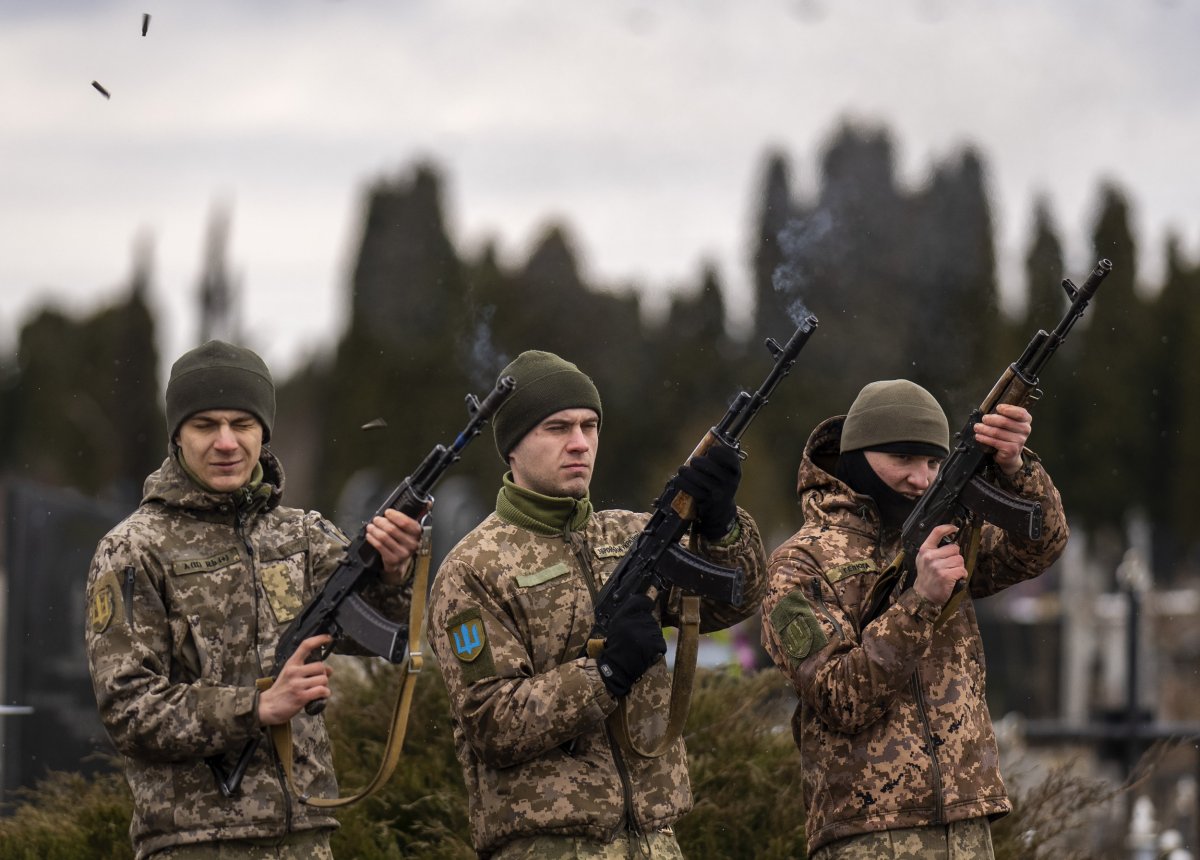Ukrainian special operations forces are stepping up efforts to sabotage railroads and other Russian targets, which are key to Moscow's logistics strategy supporting their war of attrition in Ukraine. The United States and other like-minded allies should likewise ramp up support to organize, train, equip, and share intelligence with Ukrainian national resistance warfare efforts. Doing so could help tip the balance in Ukraine's favor.
These unconventional operations harken back to tactics used by the United States and other allies in World War II in German-occupied areas. The U.S Defense Department currently defines resistance as, "a nation's organized, whole-of-society effort," both violent and non-violent, to "reestablish independence and autonomy within its sovereign territory that has been wholly or partially occupied by a foreign power."
Ukraine has effectively used this form of irregular warfare to help repel Russia's unprovoked invasion in weeks and months following February 2022, and in currently occupied areas–approximately 18 percent of Ukraine.
They are now focused on disrupting Russian logistics, which is a critical factor shaping the battlefield. Recognizing Russia's heavy dependence on railways for transporting military supplies, Ukraine's special operations forces and intelligence services have launched a comprehensive sabotage campaign.
At the heart of Russia's logistical system lies its vast railway network, which serves as the primary means of transporting troops, equipment, and supplies during large-scale military operations. Historically, this reliance on railways has allowed Russia to mobilize quickly, but it has also become a glaring vulnerability in the current conflict. Ukraine's forces have keenly focused on targeting railway junctions, bridges, tunnels, and other chokepoints in Russia's supply chain.
The sabotage campaign has been remarkably effective, with notable operations like the attack on the Severomuysky railway tunnel and the recent sabotage of the Kinel railway bridge. These operations have damaged key supply routes, forcing the Russian military to divert resources away from the frontlines to repair and protect critical infrastructure. This, in turn, slows down Russia's ability to transport essential supplies, weakening its overall military capability.

Ukrainian forces have not acted alone in this effort. Russian partisans—groups of domestic dissidents opposed to the Kremlin's policies—have joined forces with Ukrainian operatives. These partisans are amplifying Ukraine's campaign, helping to carry out targeted strikes within Russia's borders and further undermining the Kremlin's logistical framework.
Disruptions to the delivery of ammunition, fuel, and other critical military supplies have not only delayed Russian operations, but in many cases, forced the cancellation of offensive plans altogether. The shortages have also taken a toll on troop morale, as soldiers on the frontlines increasingly find themselves without the supplies they need to continue fighting effectively. Ukrainian forces, meanwhile, have gained a strategic advantage, using the disruption of Russian logistics to bolster their own defensive and offensive efforts.
Ukraine's approach to undermining Russian logistics mirrors the resistance campaigns employed by the American Office of Strategic Services during World War II. Allied-supported groups across Europe successfully delayed enemy movements by targeting rail lines, bridges, and other transportation infrastructure. Ukraine has modernized this approach by leveraging advanced technology and old-school intelligence work to pinpoint and strike the most vital parts of Russia's railway network.
A largely unknown U.S. effort over the 2014-2022 period led by U.S. special operations forces helped build these Ukrainian resistance capabilities. Richard Clarke, former commander of U.S. Special Operations Command, said that such efforts "directly contributed to the success on the battlefield" in Ukraine.
While the sabotage campaign is impressive, for it to have a real strategic impact the United States and other allies of resistance will have to do more. Being careful to avoid escalation risks, the ramping up of international support and coordination to improve Ukraine's national resistance capabilities could help further degrade Russia's war machine.
First, Washington and allies should double down on previous support and dramatically ramp up efforts to organize, train, and equip Ukraine's national resistance capabilities. Fostering greater collaboration between Ukrainian forces and local partisans would also help. The Ukrainian government can strengthen these underground groups with more training and resources to enable complex operations.
Second, outside supporters can help Ukraine expand its capabilities for information campaigns and influence operations. This would help Kyiv to capitalize on growing Russian dissent.
Finally, allies can increase intelligence sharing to support Ukraine's precision in targeting. Satellite imagery, drone reconnaissance, and signals intelligence can pinpoint vulnerabilities, enabling impactful, low-risk strikes. This would also help broaden the campaign's targets to include additional Russian logistical hubs and rail network.
Ukrainian innovation in unconventional warfare is invaluable as Washington thinks through how America and its allies will fight and prepare for future wars.
Ukraine's ongoing efforts offer a powerful lesson for military strategists worldwide—national resistance campaigns and the sabotage of critical infrastructure is a highly effective way to weaken a larger, more powerful adversary. With increased support from Western allies, Ukraine's efforts could prove to be a real difference maker to the broader war effort.
Better supporting Ukrainian irregular warfare capabilities could indirectly help Kyiv claw back territory in occupied areas and set the stage for more favorable negotiations when the war eventually comes to an end. But the window of opportunity is closing, and time is not on Ukraine's side.
Doug Livermore is the national vice president of the Special Operations Association of America and a former senior operational advisor in the Office of the Assistant Secretary of Defense for Special Operations and Low-Intensity Conflict.
Alexander Noyes is a fellow in the Strobe Talbott Center for Security, Strategy, and Technology at the Brookings Institution and former senior advisor in the Office of the Secretary of Defense for Policy.
The views expressed in this article are the writers' own.




















 English (US) ·
English (US) ·